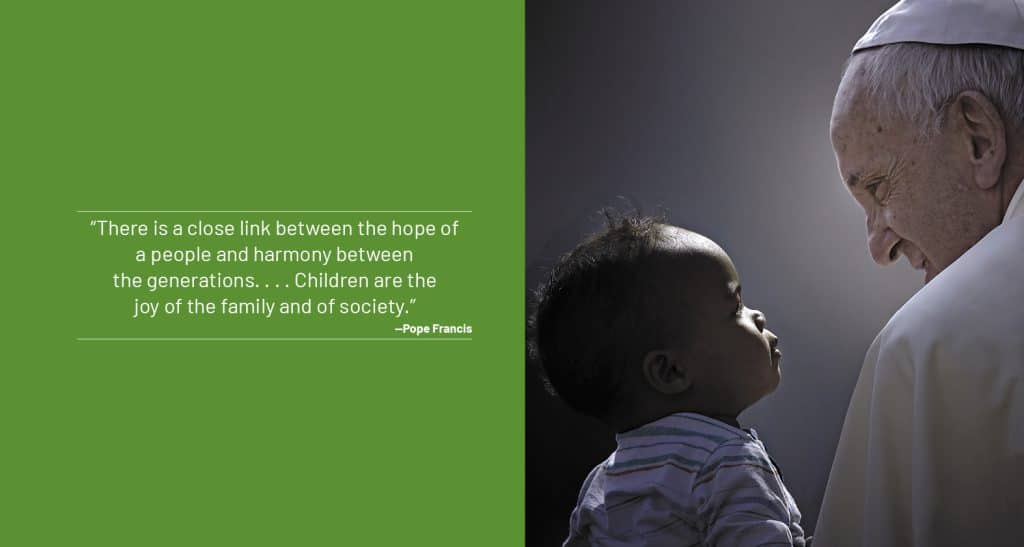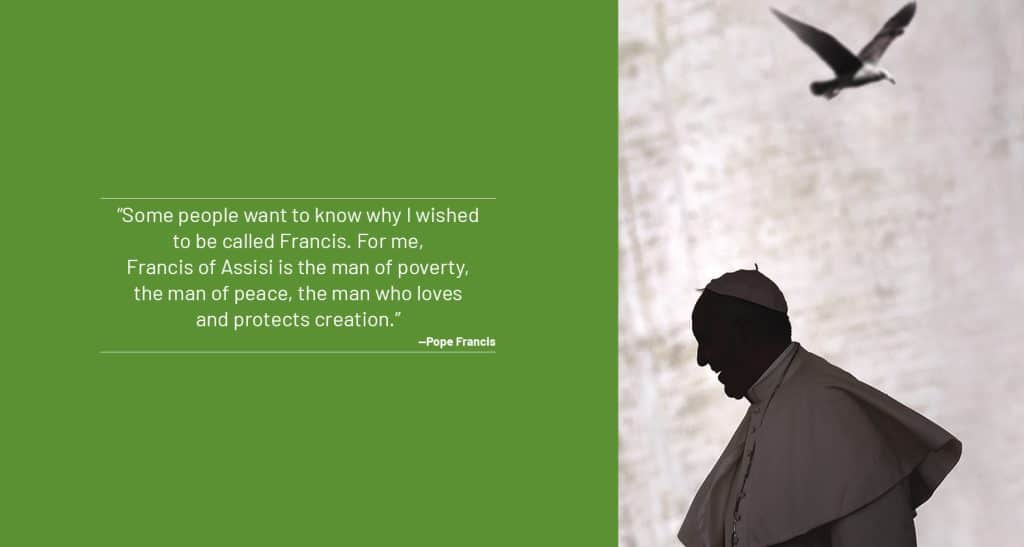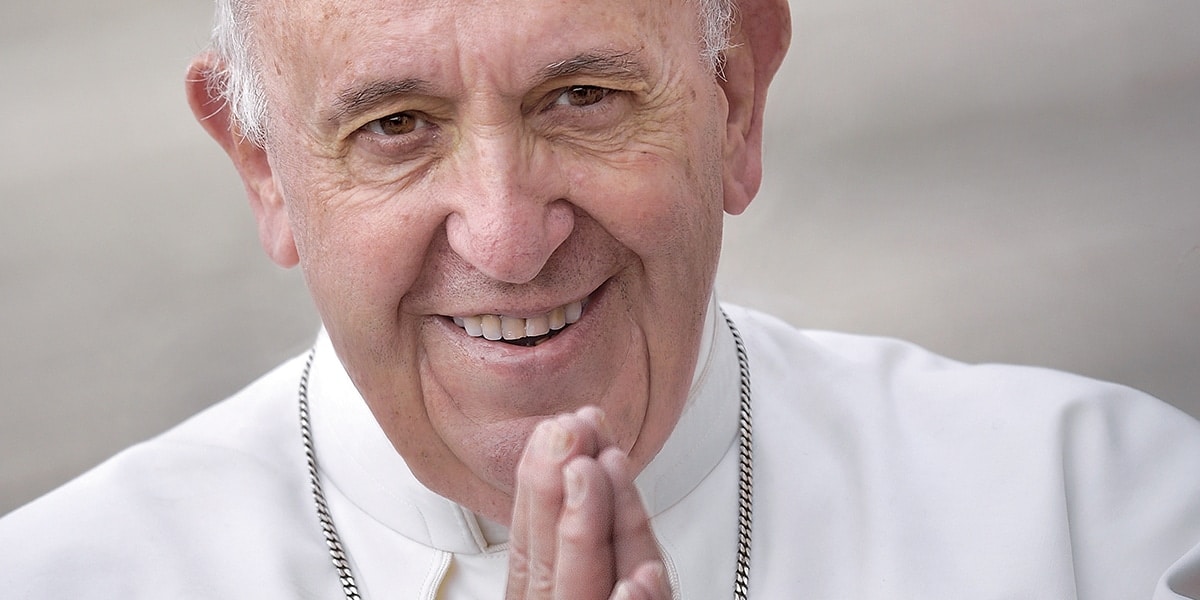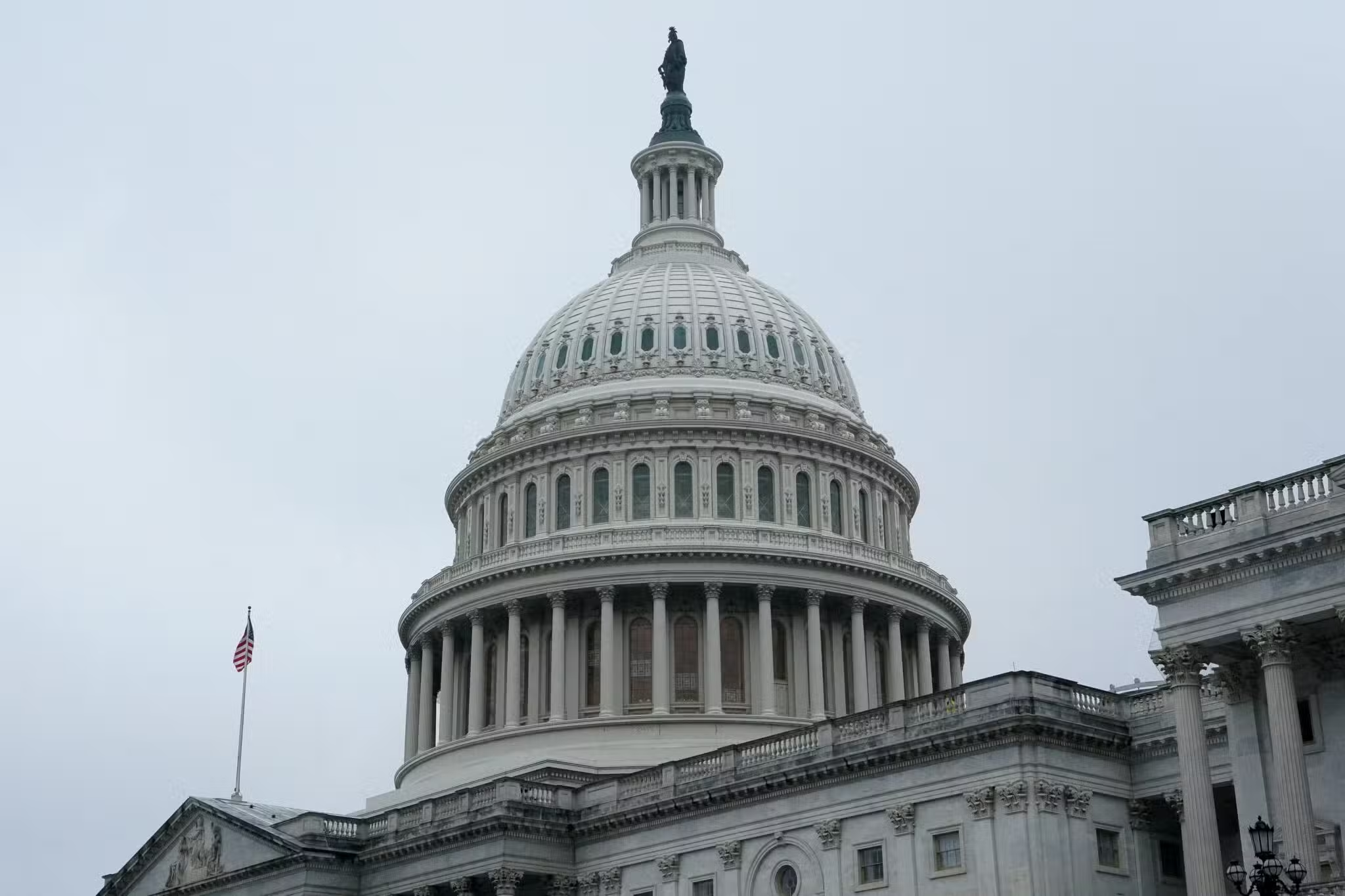In the past 10 years, Pope Francis has been both celebrated and vilified. But he remains on task for reforming the Catholic Church.
On May 11, 2019, a man you have probably never heard of, Konrad Krajewski, climbed down a manhole and walked through the sewers of Rome to restore the power supply to a disused, Italian state-owned property where many homeless persons had been living. He explained: “I intervened personally last night to turn back on the meters. It was a desperate gesture. There were over 400 people without electricity, families with children.”
Is Krajewski some sort of Marvel superhero wannabe? No, he is the almoner of the Office of Papal Charities, the man in charge of overseeing the works of mercy on behalf of the Holy Father. He is also, for the first time in the Church’s history, an almoner who has been raised to the office of cardinal. But instead of the red silk, lace, and finery we often associate with this office, he works among and for the least of these. In addition to crawling through sewers to help the poor, he has also been sent into active war zones in Ukraine to bring relief to the miserable, as well as doing many other unglamorous things for those on the margins.
And that is a fitting image to summarize the implementation of the Church’s teaching that is being attempted by one of the most striking, creative, and remarkable popes in history: Pope Francis.
A New Approach
Pope Francis’ election in March 2013 immediately signaled a new approach to the ancient faith with an emphasis on being doers of the word and not merely hearers. Despite complaints of critics that he is “confusing,” the reality is that his entire papacy has been remarkably consistent and can easily be summed up by a single passage of Scripture: “The Spirit of the Lord is upon me, because he has anointed me to preach good news to the poor” (Lk 4:18). Understand this, and you understand the entire pontificate of Pope Francis: He is about evangelization and care for the least ones.
His regnal name was the first clue. Like so much else in his pontificate, it reaches back into the treasury of the Church’s tradition and deploys it in a new way to bring good news to the poor. Rather than take a previous papal name, he took the name of a saint famous for his disdain of mammon, his eagerness to care for those nobody else cared about, and his zeal for preaching the Gospel to anybody who would listen—even birds!
Pope Francis’ appearance on the balcony over St. Peter’s Square, shorn of all papal finery except his simple white cassock, was another sign of things to come, for both good and ill. Reactionaries who literally deny the reality of the Holocaust attacked him online within minutes of his election, establishing a pattern that continues to this day.
But Pope Francis has continued his mission to make the Church a “poor Church for the poor” and a Church of active, energetic evangelization through deeds as much as, or more than, words. No small part of this comes directly from his background. Having spent years working and living among the desperately poor in Argentina, as well as under a brutal dictatorship, Pope Francis has seen firsthand not only the oppression of the poor, but also how the policies of industrialized nations have affected politics in developing nations. He has looked down the gun barrel from the receiving end and knows where glib rhetoric about trickle-down economies and neofascist strongman chatter lead.
Pope Francis has also experienced the joy and generosity the Gospel inspires among those who often have the least to share in terms of material goods. One of his earliest letters was “Evangelii Gaudium” (“The Joy of the Gospel”), in which he frankly called the Church out on our perennial habit of navel-gazing and mutually destructive squabbles over liturgical niceties, money, and power, and back to its primal mission of bearing witness to Jesus Christ. Moreover, he insisted that such witness be a matter not merely of words but also of lives lived sacrificially for marginalized people.

He warned of “those who ultimately trust only in their own powers and feel superior to others because they observe certain rules or remain intransigently faithful to a particular Catholic style from the past. A supposed soundness of doctrine or discipline leads instead to a narcissistic and authoritarian elitism, whereby instead of evangelizing, one analyzes and classifies others, and instead of opening the door to grace, one exhausts his or her energies in inspecting and verifying (94).”
And he has lived this out. Rather than guard a fortress or curate a museum, Pope Francis has left the fortress with gusto and gone out into the highways and byways to bring the love of Christ to those on the margins. He has embraced all sorts of people in the disenfranchised corners of humanity, washing the feet of prisoners, eating supper with the homeless, and serving people in need. His willingness to welcome, eat with, visit, and listen to the vast diversity of the human race has, as with Jesus, both provoked appreciation and fired intense dislike.
Controversy in the Amazon
One of the flash points for this pastoral style came in the autumn of 2019, when the pope welcomed Catholics from the Amazon Basin to a synod to address their pastoral needs. Here were brother and sister Catholics, seeking the sacraments and priestly care in a region so remote they were lucky to celebrate Mass once every several years in some areas. In addition, many of them were facing both murder and land theft at the hands of the wealthy who were working hand in glove with the state in a campaign of ethnic cleansing.
But all Pope Francis’ detractors could see was a small statuette, made in the custom of local folk art and dedicated to Our Lady of the Amazon. This they declared an “idol,” the fellow Catholics who brought it “idolators,” and the pope a heretic for welcoming them and their gift. A man with ties to an Austrian nationalist group founded by a Nazi threw the statuette in the Tiber, where it was fetched and restored to its rightful place in a church near the Vatican.
The incident was played up as a triumph of Catholic orthodoxy versus “pagan papal heresy” in the reactionary Catholic press in the Anglosphere, but, in fact, what occurred was a racist act of aggression against fellow Catholics whose only sin was being brown, dirt poor, and possessed of a non-European artistic style.
The Common Good
Pope Francis’ tendency to place moral and economic justice concerns over aesthetic ones is on constant display in his pontificate. This is not to say that he opposes beauty or reverence in Catholic worship; it is merely to note that he does not prioritize European aesthetics over people’s needs. He shows a marked preference for the beauty of holiness over the holiness of beauty whenever the two are made to artificially conflict because he sees goodness and beauty in harmony, not in competition.
He chose to eschew, for instance, the comforts of the Apostolic Palace and instead has taken up residence in Domus Sanctae Marthae, where he celebrates morning Mass and takes communal meals. He explained: “The residence in the Apostolic Palace . . . is large, but the entrance is narrow. Only one person at a time can get in, and I cannot live alone. I must live my life with others.”
The pope’s drive to be in community and emphasize the common good is also evident in his approach to the social teaching of the Church, as D.W. Lafferty, of the website WherePeterIs.com, notes: “From early in his pontificate, Pope Francis has been signaling a change in the Church’s approach to life issues. He rightly sees the threats of economic inequality, nuclear war, environmental collapse, global pandemics, etc., as life issues alongside abortion and euthanasia.”
This, far from being a break with Catholic moral and social teaching, is a reaffirmation of it. The Church teaches a consistent life ethic that emphasizes the sanctity and flourishing of human life from conception to natural death, with a view to our eternal destiny in Christ. Pope Francis consistently sees the unborn as related to, not the opposite of, all the other forms of human life that are threatened and degraded by sin.
Failure and Success
Pope Francis has grown in his understanding that—in the words of the Second Vatican Council—“Man is the only creature on earth whom God has willed for his own sake.” Sometimes he has failed, perhaps most egregiously when, in early 2018, he rebuked Chilean survivors of sexual abuse as slanderers before grasping the reality that they were right and their abusers were liars.
But he soon apologized for his sin, declaring: “I was part of the problem. I caused this, and I apologize to you.” In 2019, he abolished “pontifical secrecy” for cases of sex abuse, and in 2021 he updated canon law on the subject, explicitly criminalizing sexual exploitation of adults by priests and making it a crime to fail to report abuse. He has met with survivors personally. He called for an annual audit of what is being done globally and where the Church needs to improve.
But there remains too much of a culture of secrecy, too much bending or ignoring the rules, and a tendency to clericalism that has blunted his actions against certain figures. Like many clerics of his generation, his learning curve has been real, but sometimes painfully slow.

On other fronts Pope Francis has performed better, understanding that human beings cannot be subordinated to human systems and ideologies, whether political, military, scientific, philosophical, or economic. He sees clearly that human beings depend on certain material needs such as food, water, shelter, and sufficient means to not only stay alive, but also to flourish as God intends. In encyclicals such as “Laudato Si’” and “Fratelli Tutti,” he stresses our interdependence with one another and with the rest of the created order. He understands that climate change will impact the lives of billions of people and that the ones who suffer the most will be, as ever, the poorest and most marginalized. Calling this “earth worship,” as his detractors have done, is to radically distort Catholic teaching about our responsibility to care for the garden of creation as we have been called to do ever since Genesis chapter 2.
Interdependence is a constant theme for Pope Francis because it is a constant theme of the Gospel. Indeed, in Catholic theology, our interdependence is only increased by our Baptism. In nature, human beings are social animals. But in Christ, we are more. We are members—body parts—of one another (Rom 12:3–5).
This impacts not only his emphasis on matters such as care for our common home, but also his approach to evangelization and how to order our common life in the Church. For instance, Pope Francis draws a sharp distinction between evangelization and proselytism. He declares: “Evangelization is free! Proselytism, on the other hand, makes you lose your freedom. Proselytism is incapable of creating a religious path in freedom. It always sees people being subjugated in one way or another. In evangelization the protagonist is God; in proselytism it is the I.”
‘The Poor Evangelize Us’
Unsurprisingly, this vision of evangelization, which is deeply Catholic, is also intensely opposed by his detractors, who have attempted to claim that this most evangelistic of Catholics opposes evangelization. But what he opposes is the attempt to muscle the conscience by force or to substitute for the faith the personal and political domination of others (as, for instance, in the growing push for “Christian nationalism”). The assent to faith in Jesus Christ must be a free act of conscience rooted in the power and love of the Holy Spirit, not in force, fear, domination, or conquest.
Pope Francis does not share the all-too-common view of evangelization as a thing done by some power figure to a passive patient or, worse, by a conqueror to the conquered. On the contrary, he insists that we should be aware of our own need to be evangelized, and often by the people we are condescending to help: “The poor, always and everywhere, evangelize us, because they enable us to discover in new ways the true face of the Father. They have much to teach us. Besides participating in the sensus fidei, they know the suffering Christ through their own sufferings. It is necessary that we all let ourselves be evangelized by them” (Pope Francis’ message for the Fifth World Day of the Poor, November 14, 2021).
This is a view of the body of Christ that makes authoritarians very nervous, but it informs a great deal of Pope Francis’ approach to governance as well as evangelization. His belief in the sensus fidei—the “sense of the faithful” and of the contributions all members of the body of Christ make to discerning the will of God—is what has fueled his insistence on synodality.
His critics, fearful that he will eliminate the magisterium and turn the Church into a democracy, fail to grasp that the oldest continually functioning democratic institution on earth is the Dominican Order, which uses consensus and voting to discern the will of God and order its common life. That is what Pope Francis seeks, precisely because clericalism deafens the Church to the gifts the Spirit has given to all the baptized.
For instance, the pope says: “Women must be entrusted with greater positions and responsibilities. Many calamitous decisions might have been avoided, had a woman been directly involved in decision-making! We are committed to ensuring women are increasingly respected, acknowledged, and involved!”
This, far from being a demand for women’s ordination, is simply common sense. Women participate in the kingly and prophetic offices of Christ through their Baptism, functioning as presidents, senators, queens, CEOs, teachers, generals, and every other leadership position.
Giving people with knowledge, expertise, and wisdom greater participation and leadership in decisions and institutional policies is what any competent leader does.
A Good Shepherd
The pontificate of Pope Francis, rooted in tradition, oriented toward the poor, intensely evangelistic, seeks to discern the voice of the Good Shepherd in the whole people of God. It is very much a work in progress and one which will—as Jesus did—continue to comfort the afflicted and afflict the comfortable as the Gospel has always done.
May God continue to guide this good shepherd.
Read: From Argentina to the World









2 thoughts on “Pope Francis So Far”
Mark, this is one of, if not THE best article I have seen from you. It is writers like you that release us all from the frustration of not having the right words to put out into the universe about one topic or another. In this case, I smiled happily and breathed a BIG sigh of relief when I finished reading it because you say everything I would myself LIKE to say, that I think requires saying. You present Pope Francis in an authentic and compassionate light, but without white washing him. You explain beautifully his point of view, as well as how very much we need it. But you do not deify the man. You admit his errors. All of this is done with a deft and merciful hand that puts to rest the unnecessary and destructive controversies that swirl around him. Thank you for that. Most of us feel that our hearts need rest from the constant bickering and complaints by a faction of The Church that seems more concerned with preserving their vision of an exclusive religious club than in the actual living faith given us by Christ. God willing, Francis’s health will allow him to make some progress with his vision for our suffering church and the world.
The so-called “Pope of Mercy” has been merciless, heartless, and cruel toward traditional, loyal Catholics who want only so much as to continue to worship according to the Mass of the Ages – the Divine Liturgy of St. Gregory the Great.